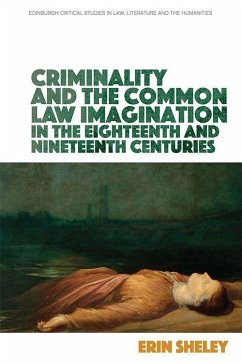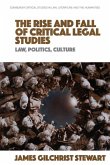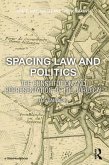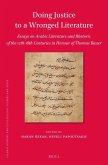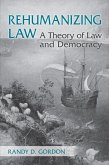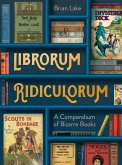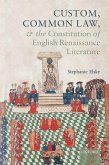A new framework for examining the relationship between individual and cultural trauma, literary texts and the cumulative 'truth' produced by the common law Through interdisciplinary readings of a range of literary and legal texts across a 200-year period, this book uncovers the connections between the individual and collective memories of law and crime that affected the development of the law itself. It draws on 3 case studies - adultery, child criminality and rape testimony - that demonstrate the impact of cultural narrative on legal development in the 18th and 19th centuries. Erin Sheley shows how the symbolic relationship between adultery and threatened English sovereignty created a quasi-criminal legal discourse surrounding the private wrong of adultery; how the literary 'construction' of childhood by 19th-century fairy-tale writers affected the development of the juvenile justice system; and how evolving rules about rape victim 'character evidence' functioned as epistemological components of volatile national identity. Transformative readings of widely read works include: ¿ Charles Brockden Brown's 'Wieland and Ormond' ¿ Thomas Hardy's 'Tess of the d'Urbervilles' ¿ Charles Kingsley's 'The Water-Babies' ¿ George MacDonald's 'The Lost Princess' ¿ Alfred, Lord Tennyson's 'Idylls of the King' ¿ Charlotte Brontë's 'Jane Eyre' ¿ Henry Fielding's 'The Modern Husband' ¿ Sir Walter Scott's 'Heart of Midlothian' ¿ Samuel Richardson's 'Clarissa' Erin Sheley is Associate Professor at the University of Oklahoma College of Law
Hinweis: Dieser Artikel kann nur an eine deutsche Lieferadresse ausgeliefert werden.
Hinweis: Dieser Artikel kann nur an eine deutsche Lieferadresse ausgeliefert werden.

